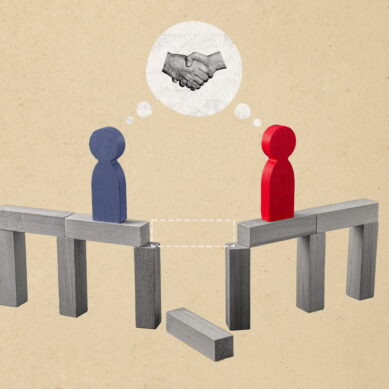Team is the most important word in this article. There are different types of teams, and while each is important, it’s critical to know which type of team you work with, so you can know what method of building them up is best.
For example, there are teams where each member has a specific role. They work individually on specific projects and mostly interact with each other for social reasons or small requests. While team building is essential for them as well, it occurs in less structured ways.
There are also those that work together on all projects, and everything is collaborative, such as the one I work with From incoming software questions, educating our clients and each other, and working on numerous projects and tasks, everything we do is a team effort. We all work together to ensure the client is satisfied and that all projects are accomplished. This means we need to know how to work together effectively and each member needs to know where and how they operate in that team.
But building a strong team that works well together doesn’t happen overnight. It takes a constant and dedicated effort from the team lead as much as the members. Below are a few ways to make sure your team is well-rounded and supported.
Building the team
To build a strong and well-rounded group, cross-training is key. There should never be a single point of failure. For example, with a staff of 21, there should be no fewer than 4-5 individuals that understand any specific process. When a special request comes in, a seasoned individual should always reach out to the team to see who needs to be cross-trained on that task. Not only are we building a stronger team by cross-training, but we are also promoting teamwork and better service to the client.
Additionally, it is important for every staffer to know that their input is valued, and they need to feel empowered to make suggestions on process changes. Each team member needs to be encouraged to share their ideas on collective processes. Not only does this increase your team’s confidence and comfortability, but it can help improve your processes and methods.
I find that often when newer team members are learning a process, they are hesitant to question the method itself right away. But, once they get comfortable with a process, they begin to look at it differently and ask questions. This is an opportunity to determine if it is just “the way we have always done it” or if there is room for improvement. This gives your employees a feeling of empowerment, which is another critical aspect of building a strong team.
Maintaining a strong group
Once you’ve assembled your team, it’s important to continue strengthening, supporting, and motivating them.
Make sure to motivate with positivity! Acknowledge their efforts, explain what you liked about their work. Let them know they are doing a great job! But as important as it is to motivate, encourage, and value input, establishing expectations can’t be ignored. Clear expectations of their responsibilities are critical, and understanding the outcome of not meeting expectations needs to be communicated.
Clear, concise communication is very important to ensure understanding of expectations and outcomes. Depending on the project, this could mean recurring meetings to touch base and ensure the project is on track and headed in the right direction.
Setting clear goals and ownership of those goals is important. Team members need to own their goals, and just as important, they need to be responsible for holding themselves accountable for said goals and making sure they are on track with meeting them. If a goal is in jeopardy of not being met, they need to communicate that to their direct report who should assist with planning to ensure the goal is met. This establishes a team approach along with individual ownership.
Leading a team
Strong leadership that the team can trust is critical. If this is not present, the team will not be set up for success and will fail to thrive. Confidence, honesty, and being vulnerable are all important traits of strong leadership.
These are the top attributes of building and maintaining a team, although there are many others as well, such as assigning mentors to newer staff members, celebrating achievements, and evaluating performances. And as with all positions, a strong passion for the work and for accomplishing it in a team environment is necessary; without that passion, it just won’t work.
































































